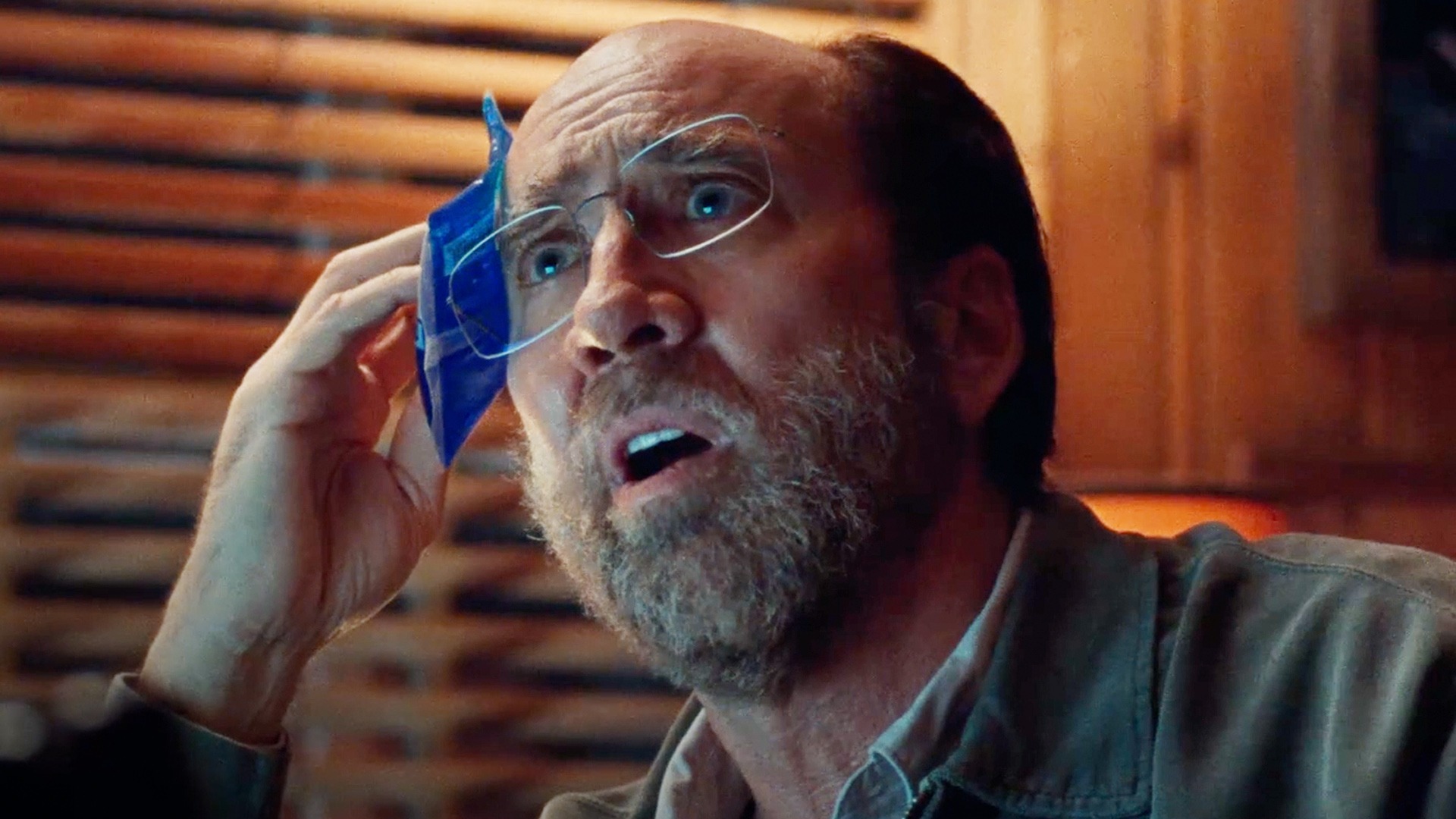It’s fair to say that Nicolas Cage is an actor who isn’t afraid to dip his toe, and occasionally his whole body, into the weirder side of cinema. It’s fairly true to say that no matter whether the film turns out to be good or bad, the performance will be absurdly entertaining.
In Kristoffer Borgli’s Dream Scenario, Cage plays Paul Matthews, a mild mannered and largely forgettable tenured professor. He’s a man who longs for wider respect and recognition in his otherwise good life. His students routinely ignore him in class, his peers openly pilfer the ideas he’s never gotten round to writing up, and his own daughter has a repeating dream where she’s in danger and sees him standing by doing nothing.
Only it’s not just his daughter who is having these dreams. First a trickle and then a stream of different people confess that they regularly see Paul amiably passing by, or just hanging out, in their nightly reveries, leading to him becoming a minor celebrity, and feeling like he finally is getting what he always wanted. But when the dreams begin to turn sour, and Paul’s dream figure begins terrorising the somnolent citizens, the fickle eye of fame turns hard against him, begging the question of what it means to be the man of everyone’s dreams with all the dark repercussions that carries with it.
Much like his previous film, Sick of Myself, Borgli’s script is ultimately a portrayal of the darker side of social media, celebrity and Cancel Culture. Paul’s story is both tragicomic, and touches on some the same sort of anxiety-based horror that imbued Ari Aster’s (who also produced Dream Scenario) recent film, Beau is Afraid. Exploring middle-aged angst, insecurity and a persecution complex, it’s a wonderfully evolving meander through this bizarre situation and feels entirely within the wheelhouse of A24’s usual avant-garde releases. It also feels very much of a piece with Cage’s portrayal of Charlie Kaufmann in Adaptation. Both men are massively insecure, balding, and coincidentally both are failing to write a book.
Cage plays Paul with a delightful sense of petulant impotence, and a whining mundanity that steers just enough into kindness so as to be endearing despite his foolish and occasionally ridiculous decisions. Julianne Nicholson also does sterling work as Paul’s loving but weary wife, putting up with his antics, and this unwanted fame with increasing ire. There are also brilliant smaller performances by Dylan Gelula as a woman whose dreams of Paul have taken a steamy turn, while Michael Cera plays up a parody of a millennial marketing executive desperate to make a buck from this sudden internet notoriety.
It’s not all plain sailing though, as the nature of narrative does give the audience something of a helpless feeling, as Paul’s life is tossed one way or another by the feelings of the masses. The final act of the movie also feels insubstantial and messy in a way everything building up to it didn’t. This is largely due to the metaphorical side of it taking precedence, and it struggles to find a way to end the film that feels emotionally satisfying.
Yet, this is still a wild ride, and a decidedly novel and funny experience. Proof that a good enough actor can vanish into any role, and another notch on the bedpost of Nicolas Cage’s career litany of bizarre and memorable weirdos.


Comments